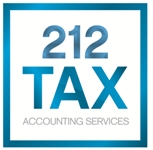The team of experts at 212 Tax & Accounting Services can help determine the best business formation for your unique needs as well as assist with the filing process so you can hit the ground running. Let’s start by introducing the different types of business formations as they relate to realtors.
Why not a sole proprietorship?
If you’re just starting out with your real estate business, you might be asking why you can’t simply continue as a sole proprietorship. While sole proprietorships are the easiest business entities to create and require little to no startup effort, they offer no protection to the business owner. If your business was sued or you have an unexpected judgment filed against you, your personal assets may be at risk. This is why most attorneys would recommend you file for a business formation as soon as you begin your business as a realtor or broker.
Partnerships
Partnerships are for businesses of two or more individuals operating together. There are several different types of partnerships such as general partnerships, limited partnerships, and limited liability partnerships. In a partnership, the partners might share equal control or have different ways of managing loss depending on the relationships of the partners.
For tax purposes, all partners receive a share of the income dependent on the amount of ownership they possess of the business. The partnership itself does not pay separate taxes on profits. Because partnerships don’t shield your personal assets and can become complicated in the event of one partner wishing to be removed from the agreement, forming an LLC is usually the more popular choice for business owners.
LLCs
LLC stands for Limited Liability Company and the title itself is self-explanatory. Basically, this type of business formation offers limited liability over any debts against the company. LLCs, in most states, only require one member. They also act similarly to partnerships in that all taxes are processed as pass-through to the members on their personal income reports, however, you can instead elect for your LLC to be taxed as an S-Corp or a C-Corp.
LLCs are popular choices for business owners because they are the most flexible formation. Speak to a qualified tax expert about the different rules and regulations for forming an LLC in your state, as the rules often vary by location.
Corporations
There are two different types of corporations you can form as a business owner. The first is a C-Corp which is generally for larger businesses or businesses that are traded publicly. In this case, profits are taxed at both the corporate and individual level.
The other type of corporation is S-Corp which is similar to a C -Corp except there is no double taxation. For tax purposes, S-Corps allow you to both pay yourself a salary and dividends. This sometimes means unique tax benefits, but you would need to speak to a tax advisor about your unique situation and whether these benefits would apply to your business.
How to form a business entity as a realtor
Once you determine which type of business entity is best for your business, you’ll need to file the correct documentation with your state. The team of experts at 212 Tax & Accounting Services can assist with the entire process, from deciding the best entity for your needs to filing the proper forms with your local government office. Schedule a consultation today to get started with your filing process.
Request a Consultation
We are able to work with your unique schedule including after-hour appointments, most weeknights, and weekends.
Call to action
Build Growth Opportunities with Extensive Business Financial Services
We serve clients in a range of industries, including hospitality, nightlife, real estate, legal, and medical.


